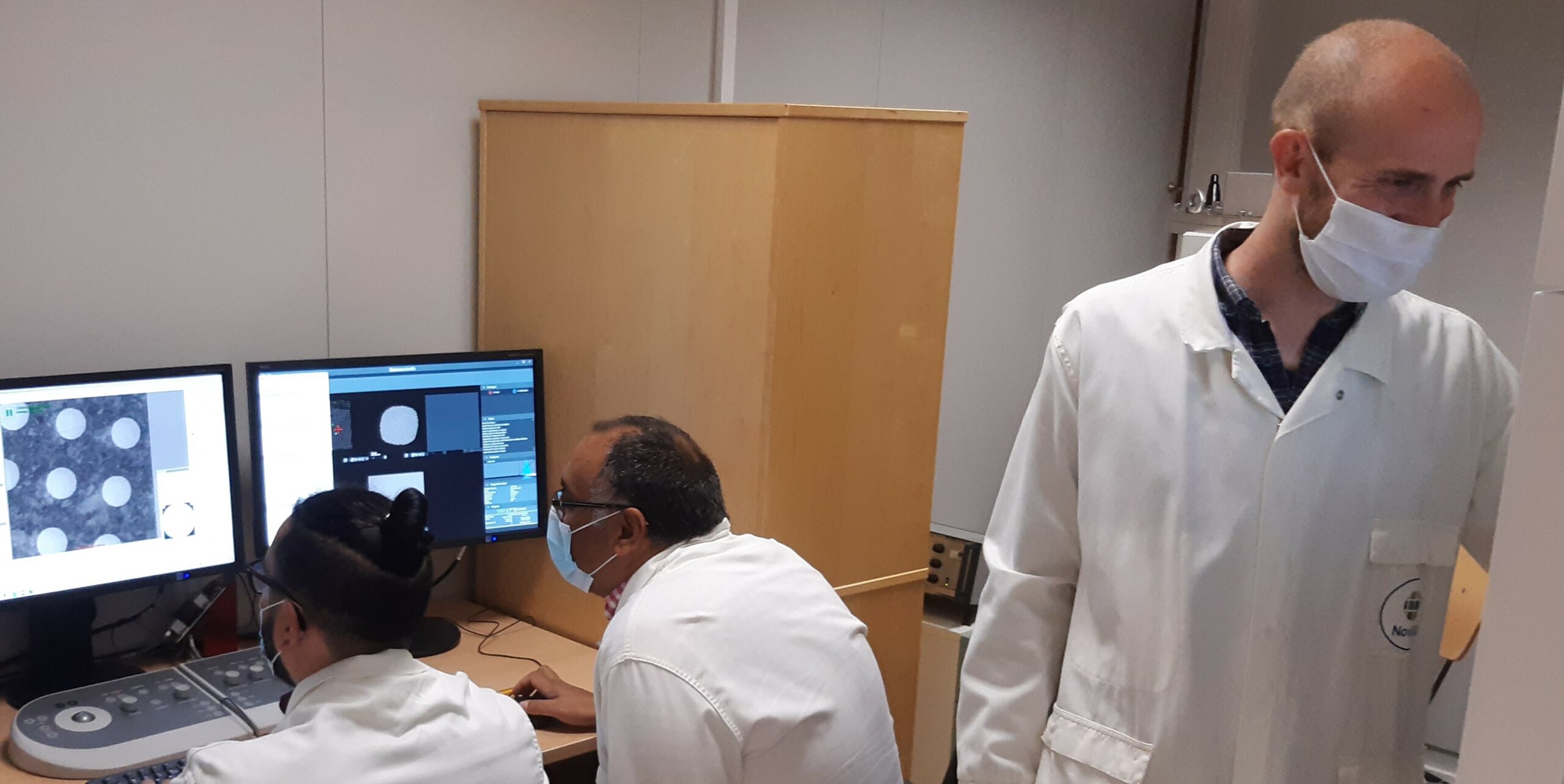Share this post:

NovAliX will benefit from the implementation at its premises of Thermo Fisher Scientific’s high-resolution microscope, the Thermo Scientific Glacios Cryo-TEM, with additional micro-electron diffraction (microED) capabilities for solving protein and small molecule structures using nanoscale crystals. This enables NovAliX to integrate an upgrade of a key technology to complement its existing biophysics capabilities, which will improve the success of drug discovery programs.
For almost two decades, NovAliX has delivered structural results to its biopharmaceutical partners – staying ahead of the competition with its technology and development. In 2016, the introduction of cryo-EM in its offerings brought with it the ability to cover the entire spectrum of structural biology methodologies and to respond to the new challenges faced by the pharmaceutical industry.
“NovAliX prides itself on having pioneered this new field – with the ongoing support of Thermo Fisher. As an early adopter of cryo-EM, it has been a fascinating journey throughout,” said Denis Zeyer, CEO at NovAliX. “We have expanded our expertise considerably; deepening our understanding of how cryo-EM can contribute to drug discovery and how this fits into that workflow. For example, in April 2020, NovAliX published an open access article in Nature Communications – on a collaboration between French, German and Russian researchers, demonstrating how cryo-EM helps in understanding the resistance mechanism of Staphylococcus aureus. This fundamental research is a long way from a cure, but certainly paves the way for the design of new drugs to combat this deadly pathogen.”
The addition of this microscope coincides with the extension of the relationship between NovAliX and Thermo Fisher which started in 2016. In June 2020, Thermo Fisher entered into co-marketing agreements with NovAliX and other Contract Research Organizations to provide pharma customers with information about the different levels of cryo-EM service packages.
“Our collaboration with NovAliX enables access to cryo-EM for biopharmaceutical and drug discovery research,” said Raymond Schrijver, senior director of electron microscopy for pharma at Thermo Fisher. “Cryo-EM takes structure-based drug design into a new era; the rapid adoption of this technique will have a direct impact on understanding and treating some of the world’s most challenging diseases.”
About cryo-electron microscopy
Cryogenic electron microscopy (cryo-EM) is an electron microscopy (EM) technique applied to samples – cooled to cryogenic temperatures and embedded in an environment of vitreous water. An aqueous sample solution is applied to a grid-mesh and plunge-frozen in liquid ethane. While
technique development began in the 1970s, recent advances in detector technology and software algorithms have enabled the determination of biomolecular structures at near-atomic resolution.
This has attracted widespread interest in the approach – as an alternative to X-ray crystallography or NMR spectroscopy for macromolecular structure determination, without the need for crystallization. In the near future cryo-EM will be regarded as one of the essential technologies for scientists and drug hunters. Today’s technology is used by several large pharmaceutical companies – it is key to the discovery of novel molecules addressing targets previously not accessible by structure-based drug design.
About NovAliX
Founded in 2002 and based in Strasbourg, France, NovAliX is a drug discovery-focused CRO with several unique technologies. It employs nearly 200 researchers, with capabilities combining chemistry and biophysics. NovAliX offers its clients original collaborative models and extensive services within the framework of research programs dedicated to drug discovery. Its ambition is to continue its development by both strengthening its internationalization and extending and integrating the new capabilities essential to the success of its clients’ therapeutic research projects
into its technologies and base of expertise.

